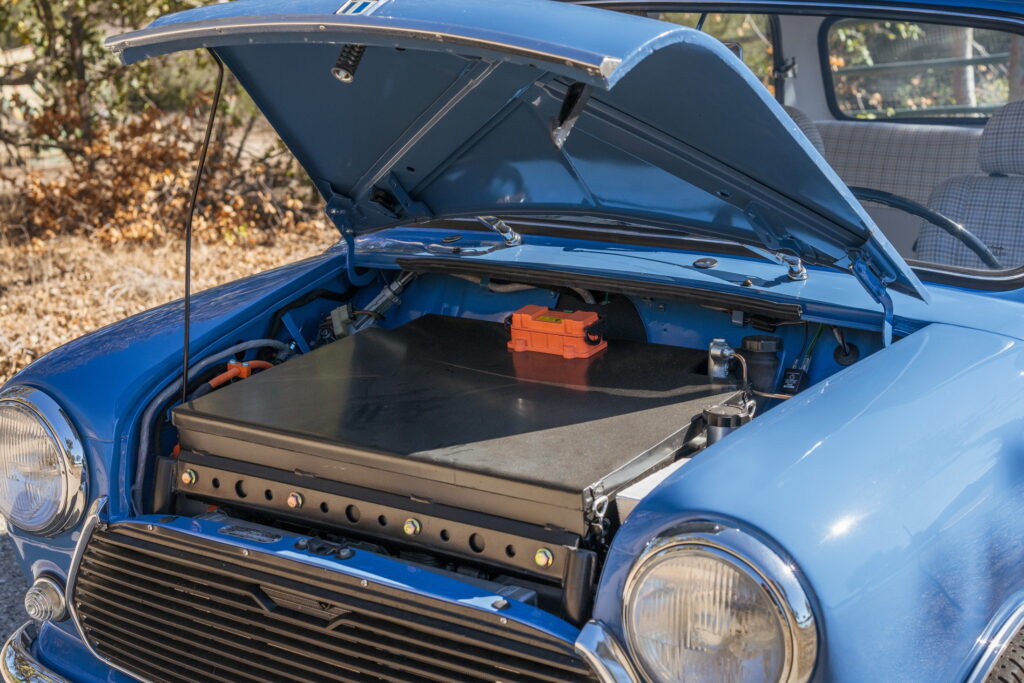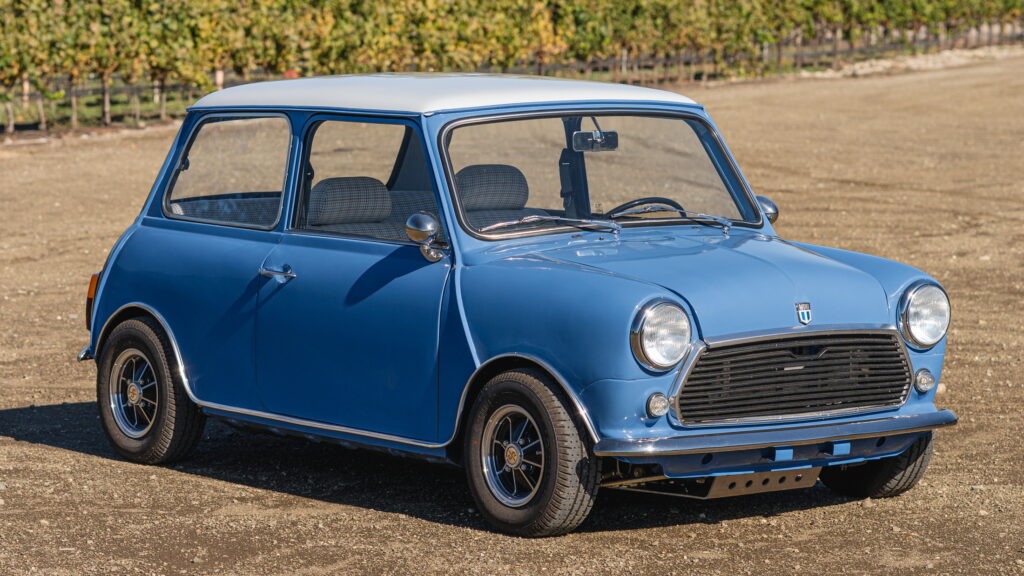The original Mini Cooper is without a doubt one of the automotive world’s great classics, and now the Gildred Racing team is looking to thoroughly modernize it. Using Tesla components, the company has decided to offer EV fun in a classic package.
Dubbed the Super Cooper EV, it replaces the original running gear with a battery pack and electric motor borrowed from Tesla and provided by Electric Classic Cars. With a motor taken from a Model S or X, the new drivetrain gives the Mini nearly 300 hp (224 kW/304 PS) and 250 lb-ft (339 Nm) of torque.
Meanwhile, the batteries provide the Super Cooper EV with up to 150 miles (241 km) of range. Each example can be customized for its owner, with modifications to the tuning of the acceleration, throttle, and regenerative braking all possible.
Read: Mini Converts Classic Model Into An EV Without Adding Any Weight

Each model starts as a classic Mini that is thoroughly restored before the electric conversion begins. To showcase its work, Gildred Racing’s first example is a 1971 Leyland Mini that is finished in Riviera Blue with a light gray roof.
Inside, cream-colored upholstery is made era-appropriate with houndstooth detailing and new Smiths style instruments are placed in the binnacle to maintain a classic look. In addition to those, Gildred Racing also offers a range of new features, such as air conditioning, a premium audio system, and more, all of which are seamlessly incorporated into the classic design.
“This is about the fastest, smoothest, best driving classic MINI that you can really hope for,” says Nathan Hoagland, Mechanic and Fabricator at Gildred Racing. “We wanted to keep this first EV classic with a streamlined dash and controls so that any driver could just get in and go. It looks and feels like a classic MINI, except with a whole lot more power, better drivability, and a much quieter experience for everyone inside the vehicle.”
Available for pre-order now, the Gildred Racing Super Cooper EV comes with a starting price of $140,000. The first production models are expected to hit the road in early 2024.


































